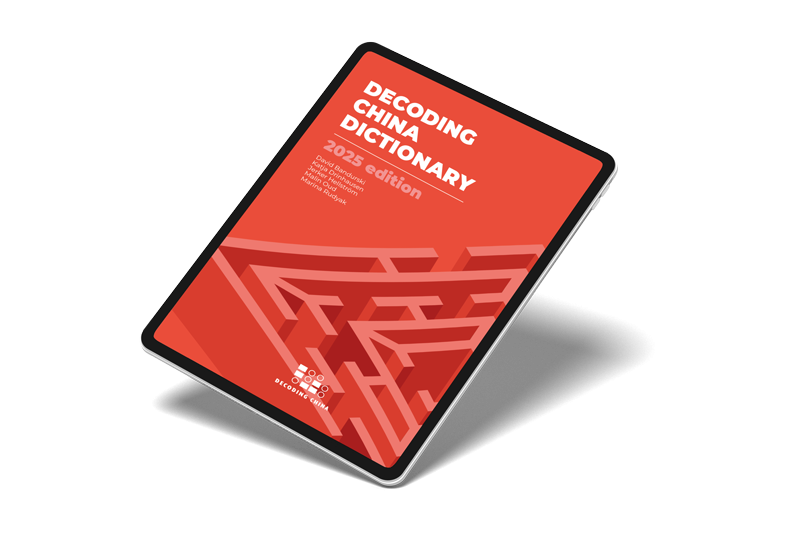
KEY TERM
Academic Freedom
[ 学术自由 ]
[ 学术自由 ]
Academic Freedom

The freedom to develop and disseminate knowledge and ideas is seen as vital for progress. In China, this ideal is lauded but requires adherence to Party norms, with social sciences facing stricter controls than natural sciences.
Brief
The freedom to develop and disseminate knowledge and ideas is often regarded as indispensable for scientific and socio-economic progress. The UN treats academic freedom as a human right, one closely connected to freedom of expression. This includes access to information, institutional autonomy and the ability to share insights within institutions of learning and the public realm. Academic freedom faces multiple restrictions and challenges worldwide, including ethical, political, financial and security-related constraints.
China officially lauds the ideal of academic freedom and its importance for progress, but requires adherence to Party-defined norms. Even as the country strives to be a global leader in science, it pursues an approach designed to keep ideological risks at bay and ensure that science serves national goals. In general, social sciences face stronger political restrictions while natural sciences benefit from significant freedom and financial support, with notable success in certain fields.
Analysis
The Party strives to secure China’s position as a global leader in science, talent and innovation by 2035. The PRC has more than 1,200 universities and invests heavily in the natural sciences and the build-up of elite research institutions and think tanks with global impact. In 2020, Xi Jinping stated that China should foster international exchange and become a centre for “scientific openness and cooperation.” But this openness is subject to political imperatives.
Early in its history, the Party staunchly advocated academic freedom, but it quickly moved to control China’s intelligentsia. Political movements, such as the Anti-Rightist Campaign in the 1950s and the Cultural Revolution in the ‘60s and ‘70s, persecuted hundreds of thousands of scholars. Even after their rehabilitation in the late 1970s, institutions of higher learning remained under Party control—a principle that became further entrenched after the 1989 Tiananmen student protests.
That said, the 1990s and 2000s was a relatively open era when growing numbers of Chinese academics studied abroad. They brought new ideas and trends in scholarship back to China, from law to international relations, journalism and feminism. Political science and economic departments debated the role of the state, while even Party-run training schools welcomed foreign academics. The Party began tightening control in the late 2000s, culminating in Document No. 9, a communiqué circulated in 2013 that warned against threats emanating from “mistaken views and ideas in […] public lectures, seminars, and university classrooms.”
Universities should be ideological “strongholds” of the CCP. In line with Xi’s calls to uphold a “unity of academic freedom and norms”, the government increasingly promotes notions of responsibility (责任) and self-awareness (自觉) that place Party-state rationales at the centre of research and education. In 2019, Fudan University deleted a rare commitment to “freedom of thought” from its charter, joining other universities in including loyalty pledges to the CCP in their statutes. Universities have long been under a dual management system by a president, usually with strong academic credentials, and a parallel structure of Party secretaries and committees. In recent years, political steerage, monitoring of research and education, and vetting processes for international exchanges have substantially increased.
As China’s leadership regularly emphasises, research must support national strategic goals, contribute to breakthroughs in key areas and help build an autonomous knowledge system. Universities receive substantial funding for natural sciences, technology, and engineering. Social sciences in turn should support the development of an “academic discourse system with Chinese characteristics” (学术话语体系) that highlights the advantages of China’s political system and approaches.
The retreat of human rights scholars after 2015, the disbandment of student groups advocating for workers’ rights, and repeated censorship of economists since 2022 reflect expanding red lines. The Hong Kong student activism in the 2010s and the White Paper protests in 2022 likely boosted new measures to ensure “ideological security”, including patriotic education curricula and expanding censorship. The growing political pressure reverberates beyond China’s borders and can impact research, publications and campus activities abroad.
Nonetheless, scholars and experts in China continue to explore and debate a wide range of issues.In areas where scientific progress is desired, China often offers more freedom than other countries. Availability of large datasets, public funding, and limited restrictions e.g. on stem cell research as well as support for new technologies such as AI have helped make China a leader in many fields and desirable counterpart in research collaboration.
How to cite this article:
Research related to this term was supported by:

Related Articles That Might
Interest You


“The Cooperation Principle” – Wang Yi Receives Sweden’s Foreign Minister in Beijing





